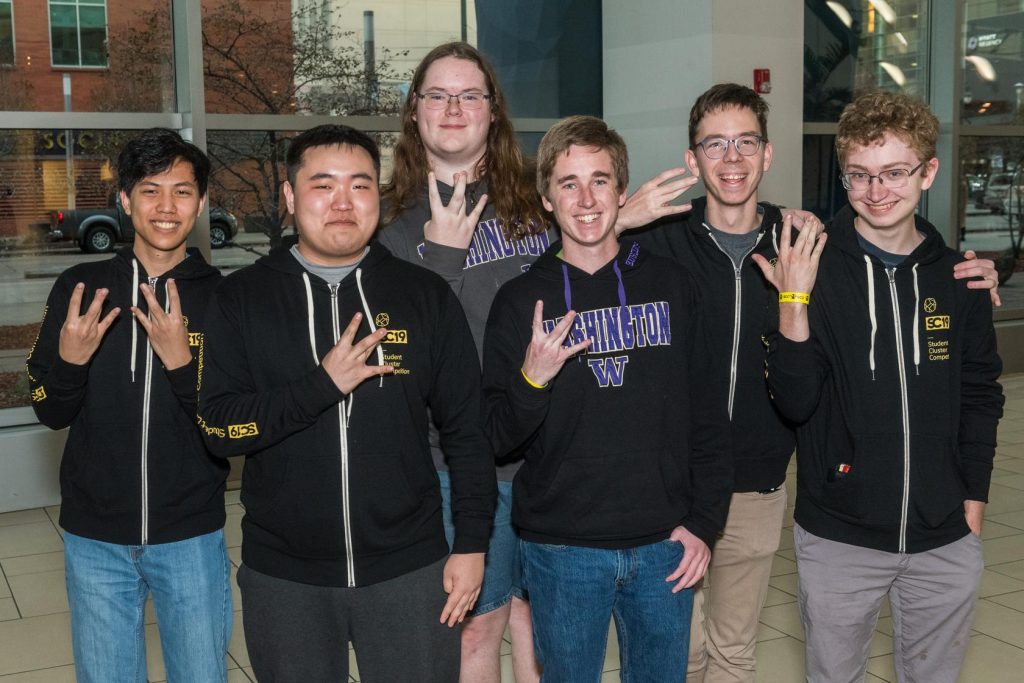
A team of University of Washington undergraduates won third place in the Student Cluster Competition (SCC) at the 2019 International Conference for High Performance Computing, Networking, Storage and Analysis (SC19). The competition, designed to expose students to the high-performance computing (HPC) community, attracts teams of undergraduate students from around the world. During the 48-hour nonstop competition, each team must assemble small clusters then race to complete real-world workloads.
Andrew Lumsdaine, affiliate professor in the Allen School and chief scientist for the Northwest Institute for Advanced Computing, worked with the six students over the fall quarter while they designed, acquired and assembled the small clusters that they brought with them to the competition.
Computer engineering student Matthew Cinnamon, computer science students David Liu and Thorne Gavin, applied and computational math sciences student Andrew Karavanov, pre-engineering student Sungchan Park and political science student Darius Strobeck made up the team, called Boundless Dawg. They built a cluster with two nodes, each with two sockets and four graphics processing units (GPUs) to run some benchmarks and HPC applications. They also presented a poster, gave a lightning talk, submitted a report and answered interview questions from the judges.
“The competition itself was very stressful but also very enjoyable. Although we prepared the best we could, there were many unexpected events that presented interesting challenges for us,” said Liu. “We had to acquire a server rack in the hours prior to the start of the competition, diagnose initial poor benchmark results, determine how to run our workloads in the time allotted, recover from burning half our credits for cloud resources and time on a bad application run and rush out a report in the final hours.”
Despite the unexpected challenges and limited time and resources, Liu thought he and his teammates completed a good number of real-world scientific workloads. Overall, he found the experience to be really rewarding and was grateful for the opportunity to compete. Lumsdaine, the team’s advisor, was similarly enthusiastic about the outcome.
“I am incredibly pleased with their performance,” said Lumsdaine. “The teams we went up against were well-financed and had much more experience. We had the fewest number of nodes, CPUs, GPUs and were a first-time entry.”
Lumsdaine added that it was a terrific event for the students and they are all excited to compete again in the future.
Learn more about Boundless Dawg, including how they got their name and the fact that none of them had any supercomputing experience prior to the competition, here.
Way to go, team!

